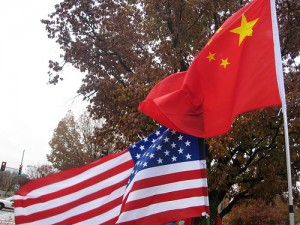It’s forgotten now, but the invention of effective pistols created a period with a lot more assassinations. Effective portable bombs made assassins even more effective. Archduke Franz Ferdinand, whose assassination started World War I, is the most famous victim, but hardly the only one.
We’re in the start of a golden Age of assassination. It has gone largely unremarked because the victims have been nobodies, and mostly in the developing nations like Iraq, Afghanistan, Pakistan, Libya, Syria and so on, though hardly limited to those war zones.
A large group of assassins have been drones (special forces hit squads are the other group.) Drones are not, as I have noted before, a technology of the rich and strong: a good mechanic can make a drone easily enough in their garage. Hezbollah has its own fleet of drones. Iran has invested in them. Turkey, while certainly a powerful nation is not a technological leader overall, but has become a leader in drones and especially autonomous drones.
Drones will get smaller, more deadly and harder to stop. More and more will become autonomous, so that they can’t be jammed.
Meanwhile, the NYTimes has a story about how Israel assassinated Iran’s top nuclear scientist:
Israel’s Mossad used an AI assisted 1 ton machine gun robot. Its parts were detached, smuggled into Iran and assembled inside Iran. The robot used facial recognition to recognize the target.
All of this tech is going to come back to bite our elites in the ass. As Dan points out, there’s no reason these types of technologies can’t be used to kill Western elites, and they will be. The reaction to then try and then clamp down on the technology will do huge harm to tech development, because the items needed to create a drone or stationary robot are simple, not complicated, and will become simpler and less complicated over time.
Ages of assassination aren’t pretty, and they increase political instability substantially. That isn’t always a bad thing, it depends if what’s on offer is better that the status quo, but it’s always a mess.
Technologies are never neutral and that is nowhere more true than technologies of violence. Firearms put a decisive end to the age of the knight, and allowed for the creation of mass democracy. Knights, when they became predominant did the opposite: they entrenched an age of aristocracy, because Knights were expensive as hell, and training to be a knight almost had to start in childhood.
How a technology starts is also not necessarily how it winds up being used predominantly. Consider the machine gun. For the first decades of its existence the machine gun was an offensive weapon: it was used by the Brits and then other colonial militaries to absolutely butcher native forces that dared to oppose them. It helped expand the British Empire and other colonial regimes.
Then came World War I, and it turned out that machine guns were actually a weapon of defense when both sides had them.
Drones have started as weapon by which elites terrorize the weak, and autonomous robots, especially, seem like a dream come true for the powerful. The great problem of power is always the Praetorian one: you need enforcers, and the more you insist on being far richer and out of touch with the commons, the more you need them, but the less you can trust them: whatever the pretense, they become mercenaries, and people who fight for money or for the right to loot and hurt people are never reliable.
Robots seem like the perfect solution, allowing elites to have a much smaller enforcement class; just the people who create and repair them. The real dream is that eventually loyal AIs will design and repair themselves, and non-elite humans will be completely unneeded. The elites will rule alone, with loyal robotic servants and no Praetorian problem or fears that in a revolution, the troops won’t shoot.
But an age of drone and autonomous robots, some of them as small as insects, but still deadly and operating in swarms, is not an age that seems likely to actually favor elites as much as they think, because, as noted earlier, it isn’t actually a hard tech: it’s hard to pioneer, yes, just as were early gunpowder weapons (which were used by Kings to destroy the power of the feudal nobility, since only they could afford enough cannon, and cannon trumped Medieval castles) but once it is pioneered, it will spread and it will be used against elites.
The only way to avoid that is to crack down, hard, on all the precursors, but since the precursors are so simple and basic to a technological society, doing so will make you backwards, and as with Japan completely controlling firearms, this only works if everyone does it everywhere in the world, otherwise one day the “White Ships” show up and you realize you’re helpless before them.
Simple, cheap, effective autonomous or semi-autonomous killing machines are an epochal military technology which is going to change everything if we can maintain societies capable of fielding them. Even in a semi-collapse, we may be able to do so, because they are, actually, simple.
The results are in the air, to be sure. No one in 1500, even, could predict all the results of firearms and the printing press.
But elite who think this will all to their way may find out, as they bleed out their last, just how wrong they were.
(My writing helps pay my rent and buys me food. So please consider subscribing or donating if you like my writing.)


 As you’d expect from the title, both more and less than it seems.
As you’d expect from the title, both more and less than it seems. Turkey has NATO’s second largest army.
Turkey has NATO’s second largest army. I’ve been reading UltraSociety, by Peter Turchin. Turchin’s a biologist who turned to mathematical models of human society, and he’s done interesting work, not all of which I agree with (or agree is quite as radical as he claims).
I’ve been reading UltraSociety, by Peter Turchin. Turchin’s a biologist who turned to mathematical models of human society, and he’s done interesting work, not all of which I agree with (or agree is quite as radical as he claims). It’s commonplace now to note that China is a surveillance state.
It’s commonplace now to note that China is a surveillance state.